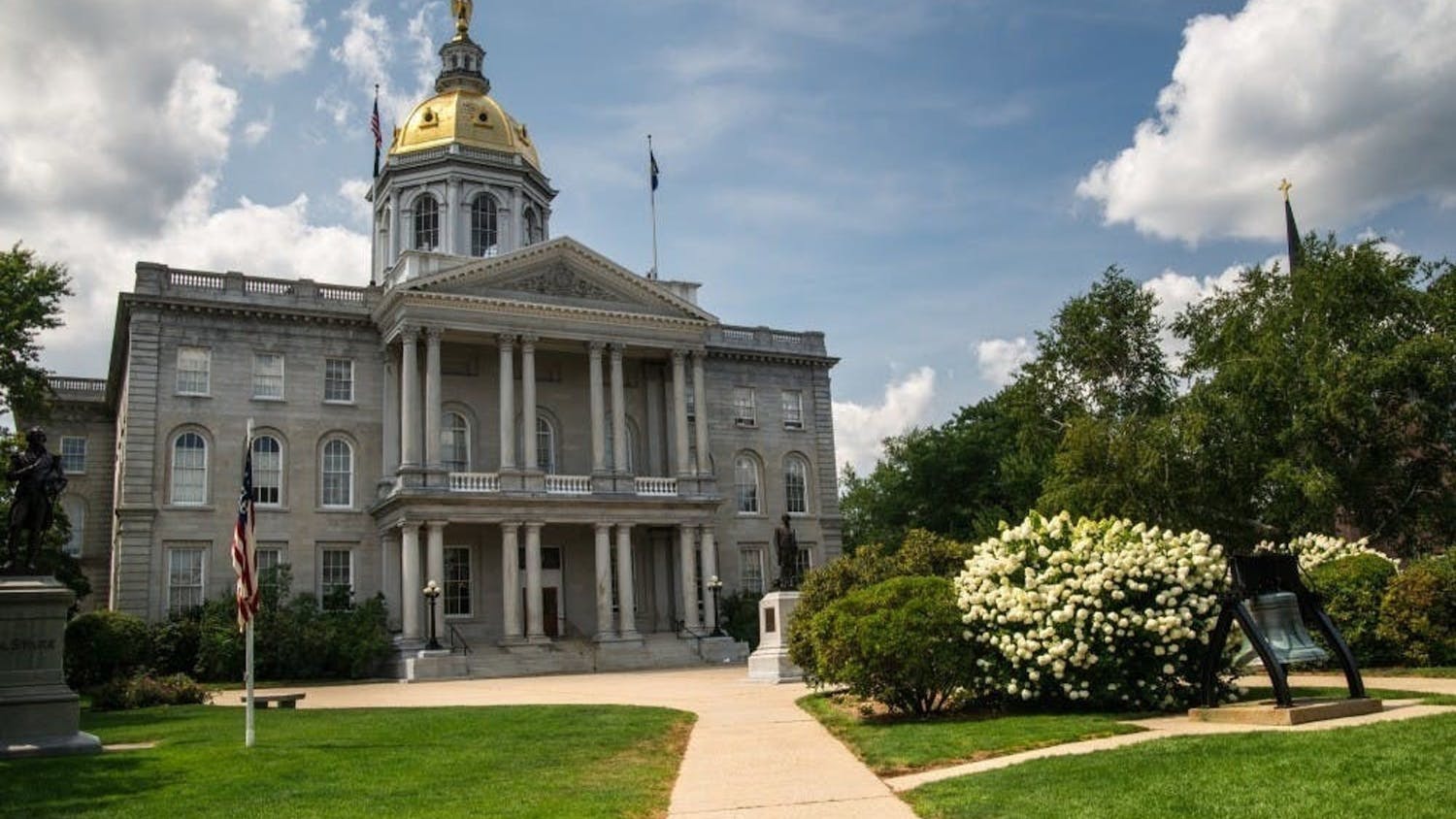The New Hampshire House is considering a bill that would eliminate a statute allowing out of state students to automatically be considered residents of the state for voting purposes. A public hearing for the bill, House Bill 1543, was held last week.
The current provision states that students living in New Hampshire can claim domicile for voting purposes while attending an “institution of learning.” HB 1543, which was originally introduced in November 2017, proposes to eliminate the specific provision that students can claim residency in order to register to vote, instead requiring out of state students to register to vote beforehand through the town clerk’s office with proof of domicile, citizenship and age.
A similar bill, Senate Bill 3, changed proof of residency requirements for same-day voters after it passed into law last June. The law required voters without a New Hampshire driver’s liscence to submit a form to the town clerk in advance. If voters failed to provide proof of residence within the 10 days following the form’s submission, they risked a $5,000 penalty and a year in jail. A judge blocked the portion of the law imposing penalties in September 2017 after the New Hampshire Democratic Party and the League of Women Voters sued based on constitutionality.
In its text, the proposed bill states that “Student status is a neutral factor in determining domicile for voting purposes, and the mere presence of a student at the place where an institution of learning is situated is not sufficient to entitle the student to vote there.”
Allegations of voter fraud in New Hampshire by out of state voters motivated the bill, said Republican Rep. Brian Stone, the bill’s sponsor. He said he hopes the bill can remove any doubt over illegitimate votes and added that the bill is far from being passed and is still being revised.
“There has been a lot of inferential data that some have taken to show the potential that voter fraud may exist near our college communities,” he said. “Whether this is true or not, the belief remains.”
However, the bill’s motive has more to do with preventing college students, who tend to vote for Democrats, from voting, said president of Dartmouth College Democrats Jennifer West ’20 and Dartmouth College Democrats club member Michael Parsons ’20.
Stone said that the bill does not bar students from voting in the state but makes students go through the normal domicile claim process. The bill is being amended and revised to clarify that an out-of-state New Hampshire student may still lawfully claim domicile in the state if they meet the requirements of the current provisions, he said.
HB 1543 echoes other bills from this year, primarily led by the New Hampshire’s Republican party, to increase voter registration requirements. A recent analysis by the Brennan Center of Justice at the New York University School of Law stated that “New Hampshire is responsible for an outsize share of the restrictive legislation introduced this year.”
New Hampshire’s effort to tighten voter registration began when the White House’s newly created Election Integrity Commission applied pressure to the state last September, alleging that the state’s vote in the 2016 presidential election had been heavily influence by voter fraud. The commission’s report raised suspicions about 6,540 voters that had registered to vote on election day, some of whom were Dartmouth students.
Vice president of the Dartmouth College Republicans Abraham Herrera ’18 is a proponent of the bill, as he believes it prioritizes those who consider New Hampshire the home and claim residence there and not elsewhere.
“When [as a student] you come to [New Hampshire] and you spend four years, you’re able to impact the policy that affects everyday lives for those people who are living here for a much longer period than you will spend,” he said.
It is fair to require those who want to vote to claim residency in the state, Herrera said.
Parsons, however, testified against the bill in last week’s public hearing after feeling heavily disenfranchised by the new proposed requirement for voting in New Hampshire.
“Whenever I fill up my car with gas, I pay state taxes, my money is going directly into the New Hampshire state budget,” he said. “I live here the majority of the year, I put almost all my money into the local economy, I’m involved with the local community, we all are. Therefore, I think I should have the right to vote.”
West added that students have a stake in local policy simply by living in the state.
“I think it is hard for someone to tell me that I shouldn’t be able to vote on issues like Article 9, which was a housing ordinance [from last spring] that would literally determine student housing,” West said. “So to say that we can’t vote on issues that directly affect us seems really silly to me.”
Parson said he believes that this is a non-partisan issue and that politicians should encourage greater participation in the state’s politics.



